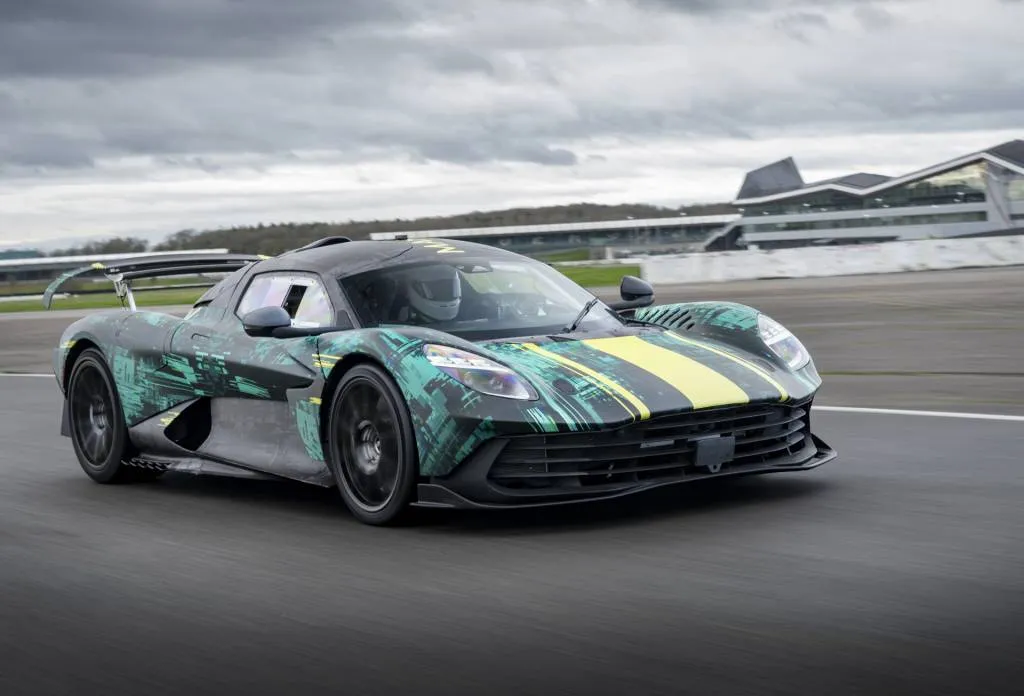Aston Martin as recently as last year said it planned to launch its first electric vehicle in 2025. However, in announcing its financial results for the past year, Aston Martin on Wednesday said the first EV has been pushed back to 2026.
Chairman Lawrence Stroll later in a call to investors said customers at present are more interested in plug-in hybrid technology and that Aston Martin is planning to roll out “a couple” of plug-in hybrid vehicles before the first EV, the Financial Times reported.
He added that Aston Martin plans to offer gas, hybrid, and EVs “well into the 2030s,” according to the FT report.
Aston Martin has already confirmed its first plug-in hybrid will be the Valhalla mid-engine supercar due out before the end of 2024. A plug-in hybrid version of the DBX SUV is also rumored.

Aston Martin Valhalla prototype
Aston Martin's first EV is tipped to be a four-door grand tourer not unlike Lamborghini's first EV due in 2028 and previewed by last year's Lanzador concept. Aston Martin also plans electric SUVs and possibly electric sports cars.
The company has at least four EVs on the drawing board, and after the first car the others will arrive at roughly one-year intervals. Stroll has previously said the four EVs will be new models and not redesigned versions of existing cars.
Aston Martin is developing its own modular platform for its EVs. The company has said the platform will even be able to underpin a hypercar. The company will leverage some technology from partners, including Lucid for motor and battery technology and Zhejiang Geely for more basic components like seats and HVAC systems.
Aston Martin is still bleeding cash but managed to reduce its losses over the past year thanks to higher transaction prices that helped revenues grow 18% to 1.6 billion British pounds (approximately $2 billion). The company reported a pre-tax loss of 239.8 million British pounds ($303 million) for 2023 versus a loss of 495 million British pounds ($626 million) the year prior.
